SECCCO: Transformation through sustainable energy cookstoves
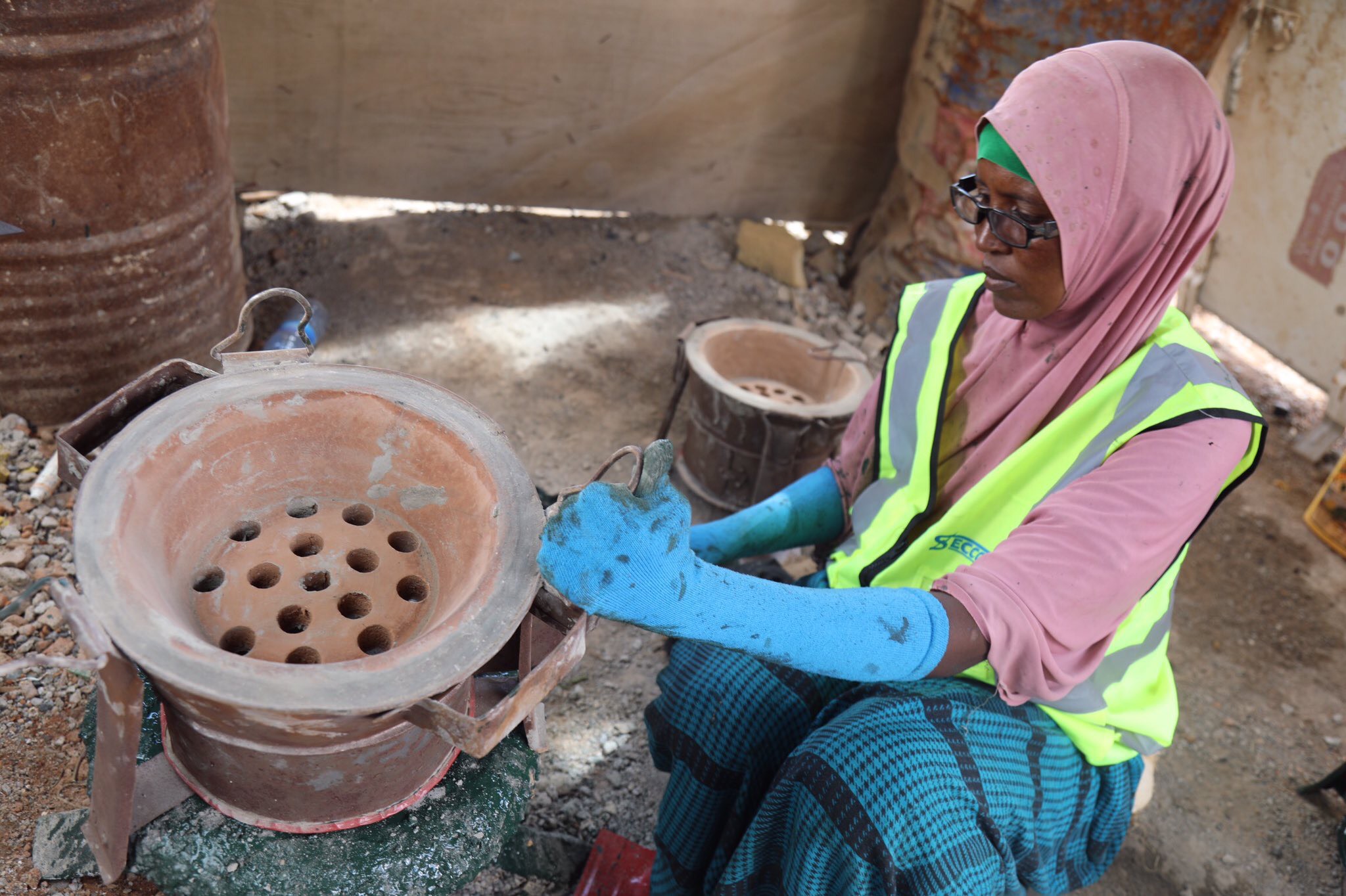
GAROWE, PUNTLAND: Just like the sun rises on the east and sets in the west, so is the need to light fire to prepare a meal in rural Garowe as cooking is a life-sustaining activity.
But did you know that not all cooking saves lives? About 4 million people globally are dying each year out of indoor pollution as a result of using dangerous dirty fossil fuels, charcoal or wood, bringing a whole bunch of problems which causes a huge health burden to families and the governments.
However, there seems to be some sight of white smoke going by the accelerated recent campaigns by world leaders to adopt clean cooking methods and that number could reduce significantly.
In the recently concluded United Nations General Assembly in New York, speakers from governments and non-state actors called for join efforts in coming up with lasting solution that will reach the more than 3 billion people around the world with little or no access to clean cooking methods.
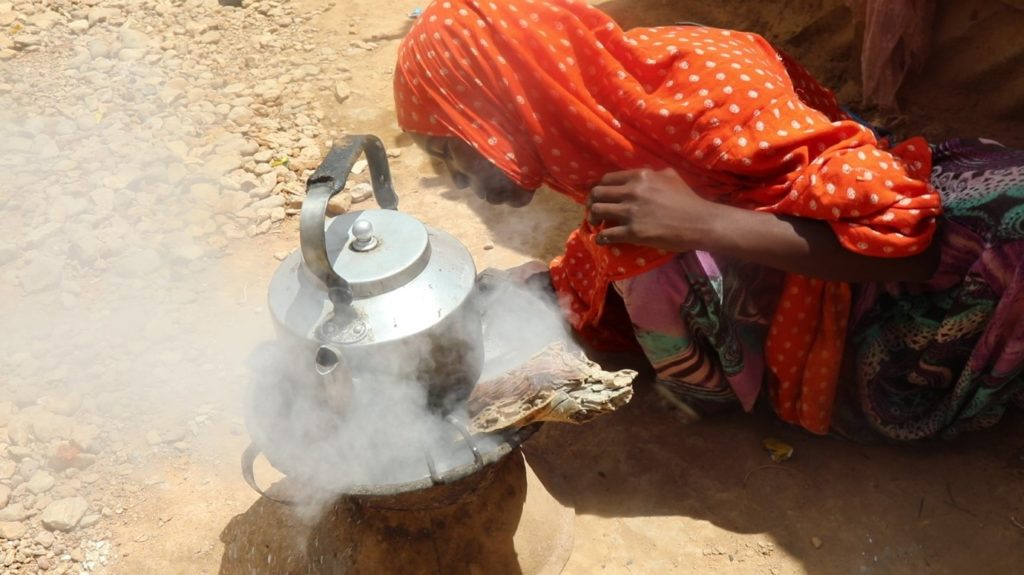
Thousands of miles away from New York, Solar Energy Consulting and Construction Company (SECCCO) in Garowe Puntland Somalia has already heeded that call. “Since we started operations in 2013, we have produced over 16,000 pieces of clean cookstoves most of which have been distributed to the internally displaced people. We work with our partners UNDP Somalia, European Union and Ministry of Environment Puntland to make it possible to achieve this,” says Omar Mohamoud Irbad SECCCO founder
SECCCO is spearheading narrative change; a narrative so entrenched in rural Somalia where 100% of our people in rural areas cook using open fire which loses 50% of the heat because of the openings between the stones,” observes Omar. “This translates to a lot of firewood needed to make a meal in comparison to cookstoves which use less fuel and produces less smoke. Moreover, cook stoves have less risk to the possibility of houses getting fire.”
“A clean cook stove is the beginning of a better life for thousands of women and children in Somalia who expose themselves to smoke every day from open fire while preparing meals for their families,” says Said Mohamoud, the Business Development Manager at SECCCO.
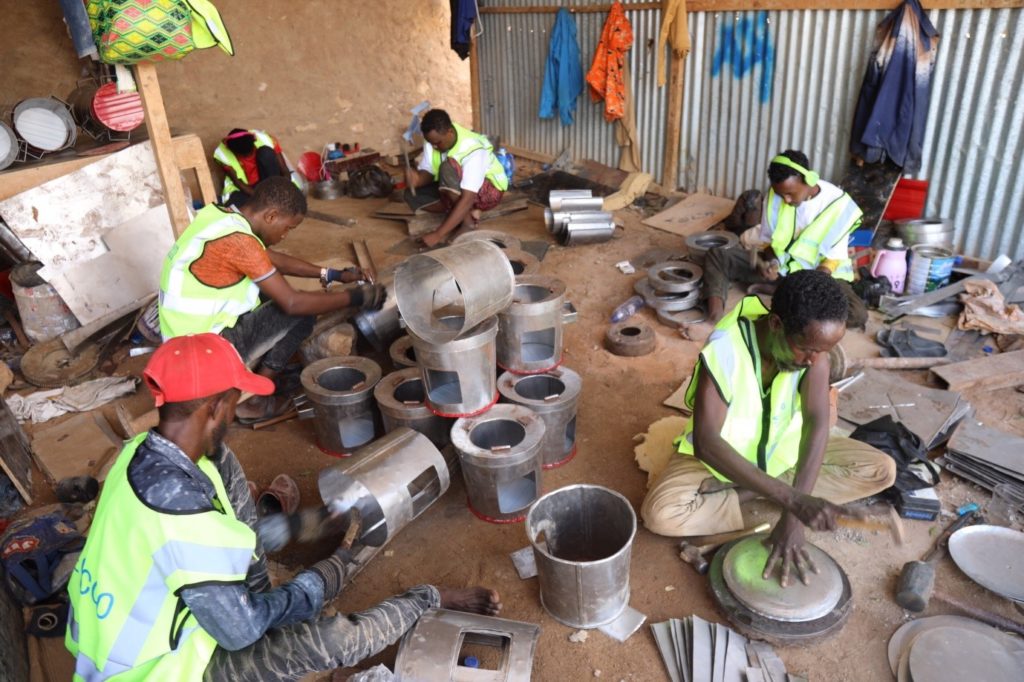
A quick visit to SECCCO Cook Stoves production unit paints a picture of a bright future going by the ongoing works. “We are in the process of making 10,000 pieces which will be ready soon and women in the IDPS can enjoy smoke free cooking,” commented Omar.
WHO says that exposure to indoor air pollution from charcoal, firewood and other solid cooking fuels causes premature deaths of 4.3 million people yearly from pneumonia chronic lung disease and lung cancer. Continuous exposure to these emissions, the UN health body adds, also leads to pregnancy complications and stunted growth of children who are exposed to high risk in the kitchen while their mothers prepare meals particularly in rural areas.
“In Somalia 99% of folks in rural areas use open fire for cooking. Somalia had a lot of forest cover prior to collapse of the government in early 90s but that situation has now changed. Illegal charcoal trade and export to Arab countries has decimated forest cover which makes it very difficult for the remaining forest to cope with the demand,” Omar says
“At SECCCO we want to bridge the gap between the United Nation’s Sustainable Development Goals (SDGs) and their implementation especially SDG7 on the call for deliberations to accelerate universal access to clean cooking by 2030 that’s why we are calling on development partners including the World Bank’s Clean Cooking Fund to back our efforts as we have put clean cooking in our agenda by making sure that no woman or child dies as a result diseases from smoke inhalation,” noted Mohamoud.
The benefits of adopting and advocating clean cookstoves and fuels in order to reduce the health problems associated with traditional cooking methods are enormous. In Somalia we have had cases of girls being raped while away in search of firewood, school-going children miss school days when they go collecting firewood in parts of rural Somalia.
Donors and financiers and private sector need to focus on the social returns of investing in clean energy cooking solutions. Undoubtedly clean cooking equals healthy and wealthy people as well as an environment that is securely conserved.
“We hope to strengthen our capacity to influence stakeholders and decision-makers with solid and contextualized evidence in order to get the interests of communities embedded into government and organizations in order to safe our people, the cost of producing one piece of cookstove is very high as of now. We have to import the metal parts and the clay used is not easily available as we have to get from about 700km away thus making the production cost go high,” he says.
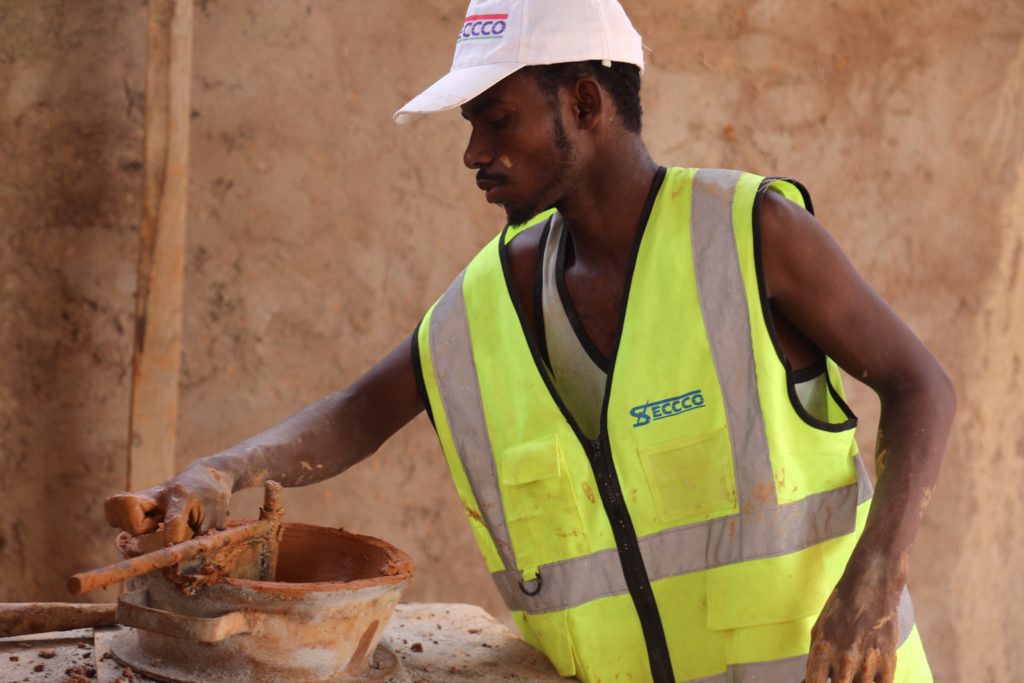
When used in confined spaces, unclean cooking methods like open fire can have huge health challenges and social ramifications. There is a positive impact on the use of clean cookstoves from our rural families but the challenge of affordability and knowledge still remains a huge task to conquer.
Mitigating impact of climate change
Although improved cookstoves and cleaner fuels can reduce indoor air pollution and its associated health problems, it is not easy to change the way communities have cooked for generations; better stoves and fuels are not affordable for everyone, hence the need for advocacy and willingness.
Poor households also have difficulties in accessing clean energy; it is also an opportunity to integrate the promotion of clean cookstoves within the policy agenda of local government especially the ministry of environment and health.
Besides creating job opportunities for artisans involved in making the cookstoves, SECCCO has found that contributing to transformational change requires patience and long term commitment, as well as the agility to respond to needs of the community while providing viable solutions to their challenges.
Stimulating demand for the future
There is a shared expectation among all involved that clean cookstoves will curb the negative impacts of traditional cooking.
“We need to one, raise awareness of the benefits of clean bio-energy cooking options; two facilitate access to funding and establish appropriate economic incentives and implement quality assurance mechanisms, facilitate behavioral change among open fire users. Implementing efficient clean cookstoves and clean fuels in our rural areas is critical for improving the health of poor women and children as well as improve the environment, adds Mr. Omar.
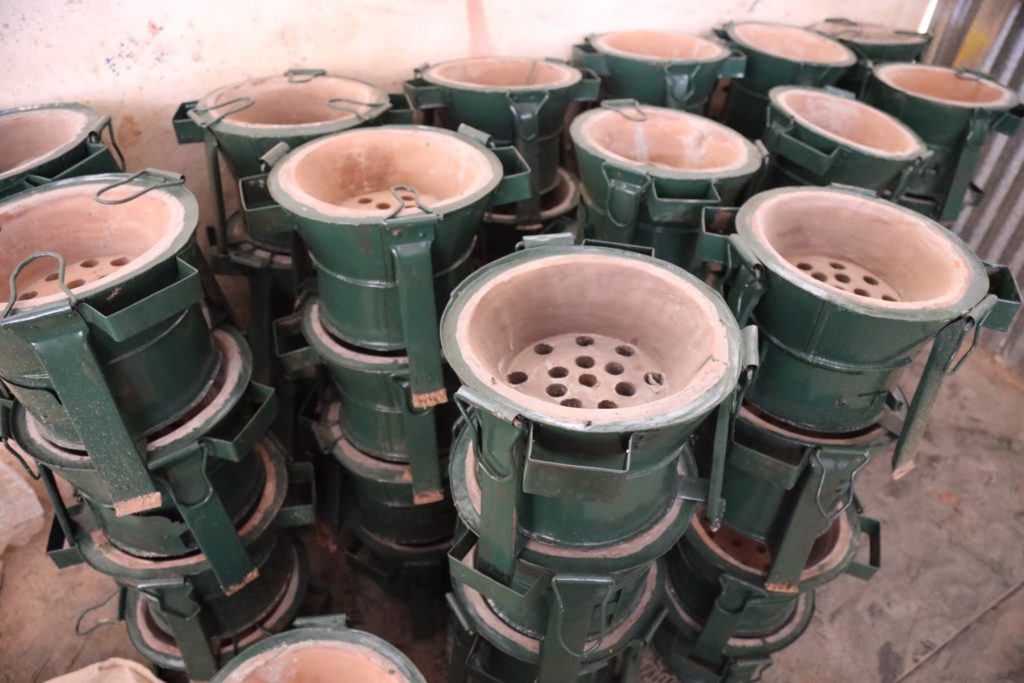
Universal clean cooking access requires finance, technological innovations, new delivery models and improved affordability. Access to clean cooking is essential to achieving SDG7 by 2030 everyone must have access to affordable, reliable & sustainable energy, with women as part of the solution as highlighted by Clean Cooking Alliance CEO van der Lans through her twitter handle on the importance of eliminating household air pollution and ensuring that no life is limited by how they cook.
Spreading the Word
While addressing the recently concluded UN General Assembly van der Lans noted that, advocacy efforts are critical because issues related to clean cooking are “often overlooked and not always put at the same level and same sense of urgency that some of the other development goals get.
“My job is making sure that this doesn’t get forgotten and gets increased focus and increased awareness among global audiences those efforts will hopefully help governments to create the right policy environments to address issues related to clean cooking, she added during a meeting on the sidelines of UNGA.
The Alliance targets a world with the adoption of clean cooking methods which promotes demand for clean cook-stoves and clean fuels and other issues. It also guides enterprises in creating the right designs for their cookstoves and making them affordable. “If it’s not affordable, then that still doesn’t give them access to clean cooking solutions,” noted van der Lans in her twitter handle